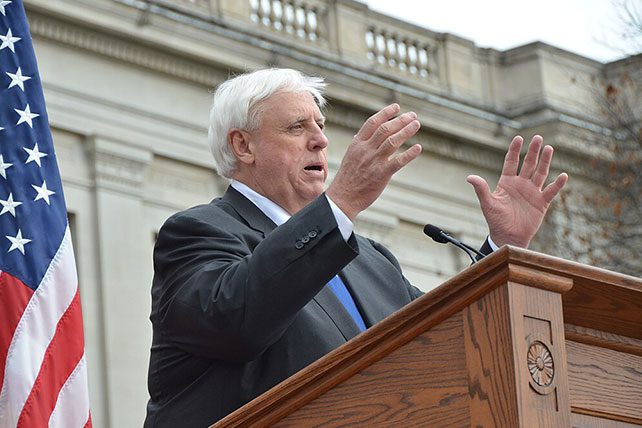On Monday, June 1, one week after the tragic and immoral death of George Floyd, I found myself in Liberty Square, Newport, Rhode Island. This location is the home of a future monument that will memorialize the untold number of Africans (and their progeny) who died on ships crossing the Atlantic as part of the slave trade, which enriched our city. I traveled to that sacred place for activism—with my black pastor friend Steve Robinson—to attend a peaceful prayer vigil for racial justice in honor and memory of George Floyd, organized by the NAACP Newport Branch.
aTo put it mildly, it was an emotionally stirring event. Although we were all wearing masks and engaging in social distancing, I could make out the faces of attendees: black, brown, yellow, and white, including ages ranging from preschoolers to octogenarians. It was a diverse and robust turnout for our small city—at least ten different clergy members were present, and around one-hundred-fifty people attended. We (the speakers, including pastors and government officials, representing the crowd) condemned systemic racism, cried, comforted one another, prayed, and sang Amazing Grace. (You can watch the fifty-six-minute vigil here: https://whatsupnewp.com/2020/06/video-naacp-prayer-vigil-for-racial-justice-held-in-newport/ and read a summary of the event here: https://www.newportri.com/news/20200601/peaceful-vigil-held-in-newport-in-wake-of-george-floydrsquos-killing.) Afterwards, numerous attendees contacted me to express how the event helped create a safe space to express their righteous anger and grief and brought a small measure of healing amidst the national angst engulfing us.
My church and many others had participated in one form of activism known as a protest. Mr. Floyd’s death has catalyzed numerous churches across the United States to do some significant self-reflection and soul-searching. For the first time, many churches are exploring forms of social activism or civic and political engagement to protest the inequalities plaguing our communities and country. For churches unfamiliar with activism (e.g., demonstrations and vigils), it can pose a daunting, even paralyzing challenge: “where do we begin?”
My goal here is to offer some actionable suggestions as to how congregations can leave the sidelines and enter this crucial and timely arena.
First, let’s clarify some terms. I define Christian activism as “Forms of public engagement that seek to connect, inspire, and mobilize congregations (and Christians) to proclaim and embody the gospel and reflect the values of the triune God’s new creation.” The purpose of activism is “[T]o be a witness. The church is a sign of the new kingdom that has broken into the world, a pointer to the new possibilities for human life together.”[1] To be clear, we are following the example of Jesus Christ, “[A]n activist who turned upside down the patterns of his world, ushering in a new kingdom that often stands in direct opposition to our earthly kingdom.”[2]
Next, when considering activism, congregations would be wise to investigate the spectrum of options, especially as it relates to their theological and denominational tradition. For instance, in the excellent book Five Views on the Church and Politics, Amy Black presents the “Anabaptist (Separationist) View, the Lutheran (Paradoxical) View, the Black Church (Prophetic) View, the Reformed (Transformationist View), and the Catholic (Synthetic) View.”[3] Where does your church fit along this continuum? It will be hard to chart a course without first pinpointing one’s current coordinates.
Third, churches should be aware of the potential pitfalls of civic engagement. Luke Bretherton outlines three: “co-option, competition, and commodification.”[4] There are organizations and political structures that will attempt to marginalize, manipulate, or leverage the church’s voice and witness for their purposes. While this should not deter action, leaders must at least acknowledge this potentiality.
Fourth, I urge leaders to prayerfully discern the emotional and spiritual temperature inside their congregation along with the broader climate in their community. It may prove helpful to ask questions such as: What is burdening our people right now? How strongly do they feel? How is our city or town responding to recent events? Additionally, I recommend researching ways you can partner with local agencies. Are there reputable NGO’s, community development corporations, or neighborhood associations you can get behind? What organizations have a strong relationship with local law enforcement? Our local chapter of the NAACP has an established relationship with the police department, which helps when planning rallies. But here’s the crux: the priority is a long-term investment rather than a singular show of solidarity. Change takes time—far longer than most of us would like!
Finally, convene your leaders for prayer and discussion, then decide what form of action you will take. Law Professor John Inazu helpfully offers,
[T]hree kinds of collective action: protests, boycotts, and strikes. Protests call attention to a problem or a policy. Boycotts discourage consumers or citizens from patronizing businesses or using certain products or services. Strikes mobilize employees seeking changes from their employers.[5]
When it comes to novice churches, I recommend they help organize a multi-ethnic and multi-denominational prayer protest near civic institutions, like city halls. It is crucial this gathering be as diverse as possible. If it is to be a witness to the community, it must reflect the Revelation 7:9 vision of heaven: Christians “from every nation, tribe, people and language.”
Now, I feel it’s necessary to add a quick note to white leaders: as a white male myself, I want to remind you that you represent the dominant, privileged culture, that is, the oppressors—even if you don’t see yourself as such. Thus, your primary role is to serve as an ally, one who amplifies the voice of the abused and marginalized. For example, at the prayer vigil I attended, my black friend Steve Robinson spoke before me. I stood beside him. When he started to read a poem from his iPhone, without his asking, I reached out and held the microphone, so it was more comfortable for him to share. I don’t say that to brag: Steve and I have been the best of friends and co-laborers fighting for racial reconciliation for fourteen years. But I hope this gesture illustrates one of many actions that our present moment, and the heart of God, calls us to.
[1] Angus Pattison, “On Christianity as Truly Public.” Postsecular Cities: Space, Theory and Practice, Justin Beaumont and Christopher Baker, eds. London: Continuum, 2011, 231.
[2] Adam Taylor, Mobilizing Hope: Faith-Inspired Activism for a Post-Civil Rights Generation. Downers Grove: IVP, 2010, 15.
[3] Amy E. Black, eds., Five Views on the Church and Politics (Grand Rapids: Zondervan, 2015).
[4] Luke Bretherton, Christianity and Contemporary Politics: The Conditions and Possibilities of Faithful Witness. Hoboken: Wiley-Blackwell, 2009, 1-2.
[5] John D. Inazu. Confident Pluralism: Surviving and Thriving Through Deep Difference. Chicago: The University of Chicago Press, 2016, 105.


















